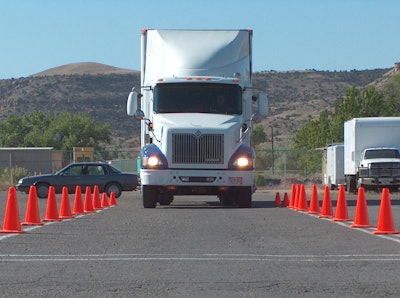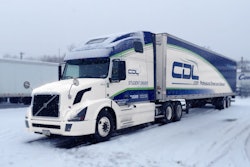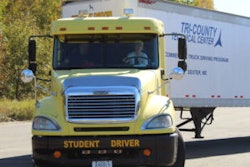
Trucking news and briefs for Friday, Sept. 4, 2020:
FMCSA proposing pilot to allow 18-to-20-year-old drivers to run interstate
The Federal Motor Carrier Safety Administration is taking the next step in potentially allowing 18-20-year-old truckers to drive across state lines.
The agency will soon publish in the Federal Register a proposal for a new pilot program to allow 18-, 19- and 20-year-old drivers to operate commercial vehicles in interstate commerce.
FMCSA is currently conducting a pilot program that allows 18-20-year-olds with military driving experience to operate in interstate commerce. The agency floated the idea last year and collected industry feedback on potentially proposing a second pilot program that allows non-military experienced drivers to drive trucks across state lines.
The upcoming notice uses input from more than 1,000 comments from last year’s notice and officially proposes the pilot and asks for public feedback on the specifics of the program. Eligible drivers for the proposed program must fall into one of the following categories: 18-to-20-year-old CDL holders who take part in a 120-hour probationary period and a subsequent 280-hour probationary period under an apprenticeship program established by an employer; and 19- and 20-year-old drivers who have driven trucks in intrastate commerce for at least a year and 25,000 miles.

For the first group, the 120-hour period would include 120 hours of on-duty time, with at least 80 hours of driving time. To complete the 120-hour period, drivers must be competent in the following areas: interstate, city traffic, rural two-lane and evening driving; safety awareness; speed and space management; lane control; mirror scanning; right and left turns; and logging and complying with rules relating to hours of service.
The 280-hour probationary period would include 280 hours of on-duty time, with at least 160 hours of driving time. To complete this period, drivers must be competent doing the following: backing and maneuvering in close quarters; pre-trip inspections; fueling procedures; weighing loads, weight distribution and sliding tandems; coupling and uncoupling procedures; and trip planning, truck routes, map reading, navigation and permits.
Drivers participating in the program would not be allowed to operate vehicles hauling passengers, hazardous materials or special configurations, such as doubles, triples or cargo tanks.
FMCSA is seeking feedback on its proposed pilot, which can be given for 60 days once the notice is published in the Federal Register. Specifically, the agency is looking for answers to the following questions:
- Should FMCSA consider any additional safeguards to ensure the pilot program is as safe as normal regulations?
- Would carriers be able to obtain enough drivers to participate?
- Would the vehicle technology requirements proposed limit participation by smaller companies?
- Should FMCSA limit the distance that participating drivers should be allowed to operate?
- Are the data collection efforts proposed too burdensome for carriers?
- Should participation be limited to drivers who have not been involved in a preventable crash?
Circle Logistics posting loads via Apex Capital’s NextLoad board
Fort Wayne, Ind.-based Circle Logistics is now posting up to 600 available loads daily to the NextLoad free load board with a “Book Now” feature, among others, allowing carriers and brokers to connect. Other features of the board are load alerts, customized searches, credit checks, real-time refresh and a fuel finder. Additionally, carriers can search for equipment types and create a schedule to plan loads ahead of a route.
“We are always looking for additional booking capacity opportunities for our thousands of shipper customers around the United States, especially a convenient and free solution like NextLoad,” said Andrew Smith, vice president of sales and operations for Circle Logistics.
In March, Circle was among a variety of parties testing DAT Book Now, an automated freight-tendering technology platform.









